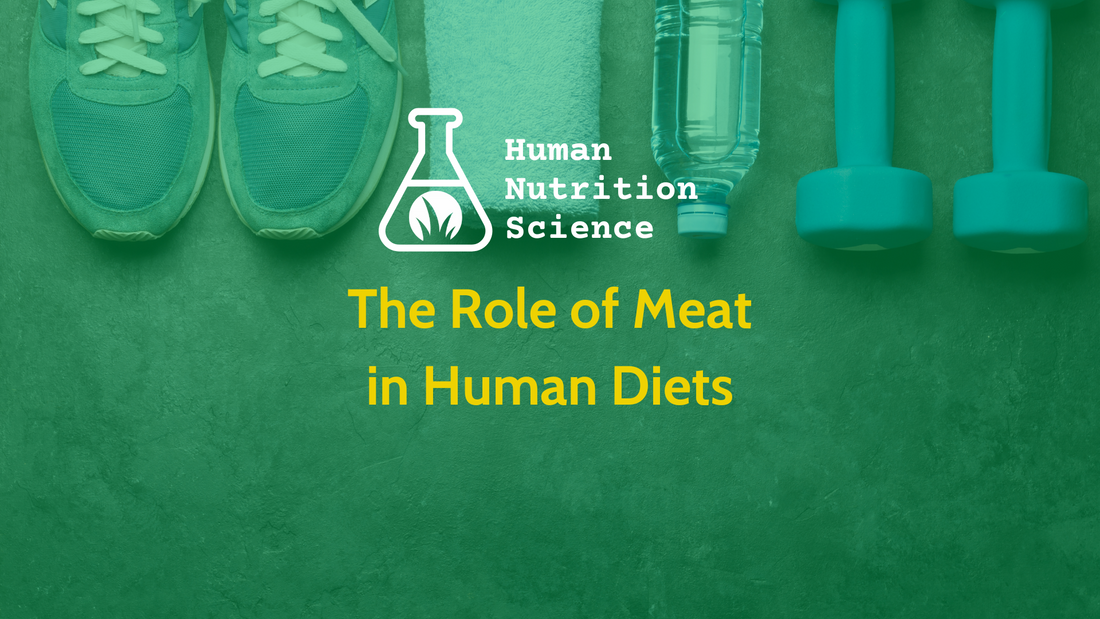
The Role of Meat in Human Diets
Meat has played a fundamental role in human evolution, nutrition, and health for millions of years. A recent article in Animal Frontiers examines the impact of meat consumption on human physiological development, its crucial nutritional contributions, and the potential consequences of reducing meat intake.
Evolutionary Significance of Meat Consumption
Human ancestors transitioned from predominantly plant-based diets to ones that incorporated more animal-based foods as the African landscape shifted from dense forests to open grasslands. This dietary shift led to significant evolutionary adaptations, including:
- Brain Expansion: Meat provided a dense energy source, enabling the growth of larger brains in early humans while simultaneously reducing the size of their digestive tract—a trade-off known as the "Expensive Tissue Hypothesis."
- Digestive System Evolution: Compared to other primates, humans have a shorter digestive tract, similar to that of carnivores, which supports efficient digestion of meat.
- Optimal Foraging Strategy: Hunter-gatherer societies consistently relied on animal-based foods due to their high energy yield, despite the presence of abundant plant foods.
Essential Nutrients in Meat
Meat is a powerhouse of essential nutrients, many of which are either absent or less bioavailable in plant-based diets. These include:
1. High-Quality Protein
Not all proteins are equal. The Digestible Indispensable Amino Acid Score (DIAAS) ranks meat as one of the highest-quality protein sources, surpassing most plant proteins in amino acid composition and bioavailability. While plant proteins can complement each other, they often require strategic dietary planning to meet human needs efficiently.
2. Iron and Zinc
These minerals are vital for cognitive function, immune response, and growth. Meat, especially red meat, provides them in highly bioavailable forms (heme iron and protein-bound zinc), whereas plant-based sources contain inhibitors, such as phytates, which reduce absorption.
3. Vitamin B12
Exclusively found in animal products, vitamin B12 is essential for nerve function, DNA synthesis, and the production of red blood cells. Its deficiency can lead to irreversible neurological damage, particularly in young children and the elderly.
4. Long-Chain Omega-3 Fatty Acids (EPA & DHA)
These fats, essential for brain and heart health, are present in ruminant meats but are largely absent from plant foods. While plant-based omega-3s exist (e.g., ALA in flaxseeds), their conversion to DHA and EPA in the human body is inefficient.
5. Bioactive Compounds
Meat contains several biologically active molecules beneficial to human health, including:
- Taurine: Supports cardiovascular and neurological functions.
- Creatine: Essential for muscle performance and cognitive health.
- Carnosine: A powerful antioxidant that may protect against aging-related diseases.
Meat’s Contribution to Global Nutrition
While meat accounts for less than 10% of the global food supply by mass and energy, it delivers a substantial share of critical nutrients:
- Vitamin B12: Meat supplies the majority of global intake.
- Iron & Zinc: Contributes significantly to the world's supply, particularly in bioavailable forms.
- B Vitamins & Retinol: Found abundantly in meat, these nutrients are often deficient in diets that are high in plants.
Regions with the lowest meat consumption, such as South Asia and parts of Africa, also experience the highest rates of undernutrition and nutrient deficiencies, suggesting that reducing global meat consumption could exacerbate these issues.
Risks of Reducing Meat Consumption
Efforts to minimize meat intake, especially in high-income countries, often overlook potential risks, including:
- Nutrient Deficiencies: Eliminating meat increases the need for supplementation and fortification, which may not be feasible for all populations.
- Adverse Developmental Effects: In young children, inadequate intake of animal-sourced nutrients is linked to impaired growth and cognitive function.
- Sarcopenia in Older Adults: Loss of muscle mass due to insufficient high-quality protein intake can accelerate aging and frailty.
Sustainable Considerations and Future Outlook
While environmental concerns surrounding meat production exist, sustainable livestock management and regenerative farming practices can mitigate negative impacts. Properly managed grazing animals play a crucial role in contributing to carbon sequestration, enhancing soil health, and preserving biodiversity. Therefore, meat production should not be viewed solely as an environmental burden but rather as an integral part of a balanced food system.
Conclusion for Modern Pastures: Unlocking Human Thriving Through Grazing Animals
At Modern Pastures, we believe that meat from well-managed grazing animals is key to human thriving. As the foundation of nutrient-dense diets, sustainably raised beef provides unparalleled benefits for health, the environment, and community well-being.
By sourcing from farms that regenerate landscapes and prioritize animal welfare, Modern Pastures ensures that consumers receive not only the highest-quality meats but also a product that enriches the land rather than depleting it. Our commitment to science-backed, solution-oriented farming means that we are not just providing food; we are fostering a resilient, nutrition-forward future.
Embracing responsibly produced meat is not only about tradition—it is about progress. It is about reconnecting people with their food, their land, and their well-being. At Modern Pastures, we invite you to be part of this journey, where thriving people, animals, and ecosystems go hand-in-hand.
Modern Pastures is a farm-direct meat company based in Western Canada, in a region perfectly suited for grazing beef and other ruminants.
The full article that was summarized above can be found at https://academic.oup.com/af/article/13/2/11/7123475
